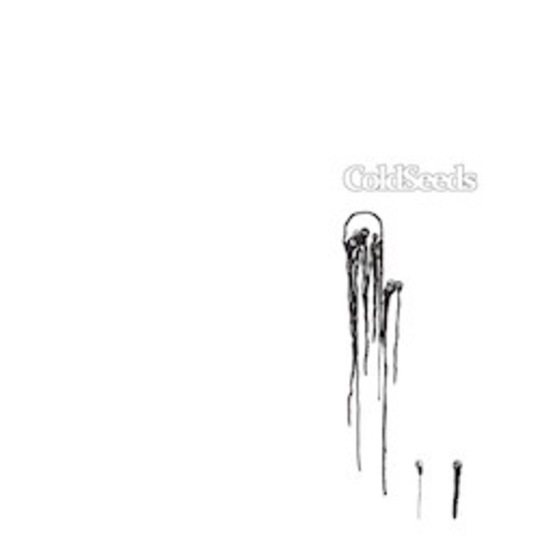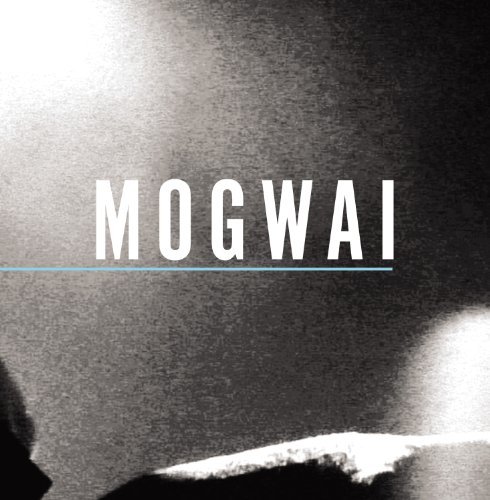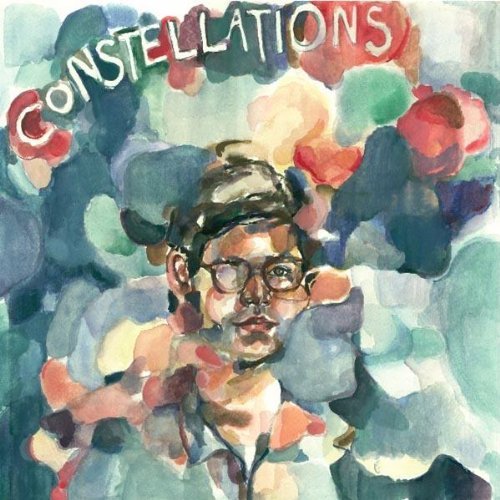‘Supergroup’ is never the right word to describe a folk ensemble, though it is a tempting one to use when Kenny Anderson - a.k.a. King Creosote - is collaborating with members of Meursault. There’s something in the tradition of the genre that means that the typical rules of song ownership don’t really apply. It renders the concept of an ‘artist’ slightly meaningless, so that when a few of them join forces it doesn’t make a sense to call it a supergroup. They’re just people playing songs.
Fortunately, the Cold Seeds project involves some very talented people playing some very good songs. Some of them are songs you might already have heard, as they’ve appeared in the separate contributors' back catalogues. But songs like Meursault’s ‘Sleet’ have been teased and tampered with to squeeze them into the flow of a truly bleak album. It has been stacked to the rafters with meticulously arranged natural noise, so that for the first verse it is the vocals that carry the song’s structure, since every melody and sound has been mixed down to near-nothing.
Left alone in this way, Neil Pennycook sings with a vulnerability that gradually fades as the instruments and harmonies find their way out of the shadows. But enough time is left at the end for all of this to disappear, leaving you and Pennycook alone again.
In a way, it’s the opposite of ‘By 11 O’Clock She’d Left’, which is structurally far more conventional. The call and response between the male and female vocals is cheerful and endearing and makes whatever party they’re at sound pretty fun. But however jolly it might be, it is knowingly ephemeral. The slightly ramshackle, boozy delivery fills the song with regrets and mistakes that aren’t yet felt, but which will be all too visible by the morning.
There are hidden dangers like this lurking throughout Cold Seeds, from the moment ‘Leave Me Alone To Lie In The Ground’ opens with an eerie noise like an old music box playing in the next room, or the soundtrack to a particularly creepy Oliver Postgate series. The vocals are weirdly muffled, almost suffocated, until another vocal appears on top, clearer and brighter. The guitars and strings begin to sound fresher as they work towards a modest wall of noise. But it is a noise that seems shy and retiring, almost embarrassed when it comes to an abrupt end and fades into the next track, as though it’s said more than it should.
Emotional evasiveness is a strength of most of the tracks on Cold Seeds, so a more straightforward folk ballad like ‘Bubble’ doesn’t quite fit. The vocals have been gorgeously sequenced to make the musicians sound as though they are miles apart, somehow still singing in harmony. And while this makes ‘Bubble’ a very pretty song, it does interrupt the lethargic woe of the album.
Frances Donnelly, who performs elsewhere as Animal Magic Tricks, carries this theme particularly well. Her voice is ghostly and elegiac, sounding at times as though she is only singing vowels. On a song like ‘Crank Resolutions’ her delivery is so subtle it is purely atmospheric, leaving the lone guitar arpeggio at the forefront of the song. Later, on ‘Soil’, she shows her versatility by singing bravely and beautifully, accompanied only by a lightly plucked guitar and a lone violin.
For their finale, Cold Seeds produce a glorious noise with ‘Please Don’t Send Me Home’. Anderson’s vocals sear with agony, yet are almost lost in the messy, distorted noise that surrounds him. It’s like he’s losing his sense of himself, swamped, immersed, drowning in his music.
It comes as a shock to hear something so loud at the end of an album that is generally relaxed, but it plays the clever trick of forcing a reassessment of the music that came before. It represents the album as a whole, as though this is what Cold Seeds we trying to say all along, but couldn’t. So if anything, Cold Seeds documents the process of a group of musicians trying to get something off their chests. It is this ambiguity that raises intrigue and will bring you back for more.
-
8Robert Cooke's Score






















